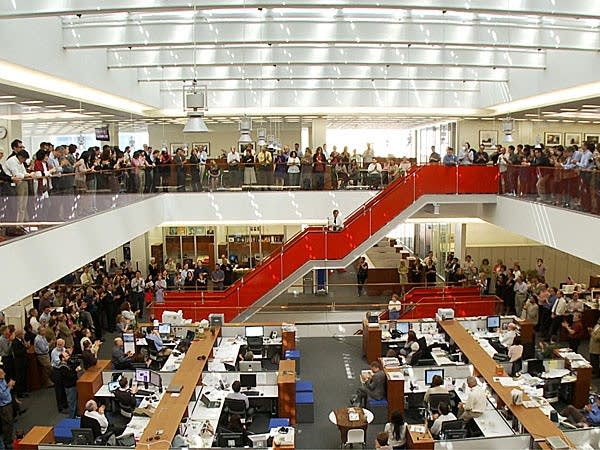America's trust in the media continues to decline

The New York Times newsroom staff meets in a scene from "Page One."
Photo courtesy of Magnolia Pictures
Go Deeper.
Create an account or log in to save stories.
Like this?
Thanks for liking this story! We have added it to a list of your favorite stories.


